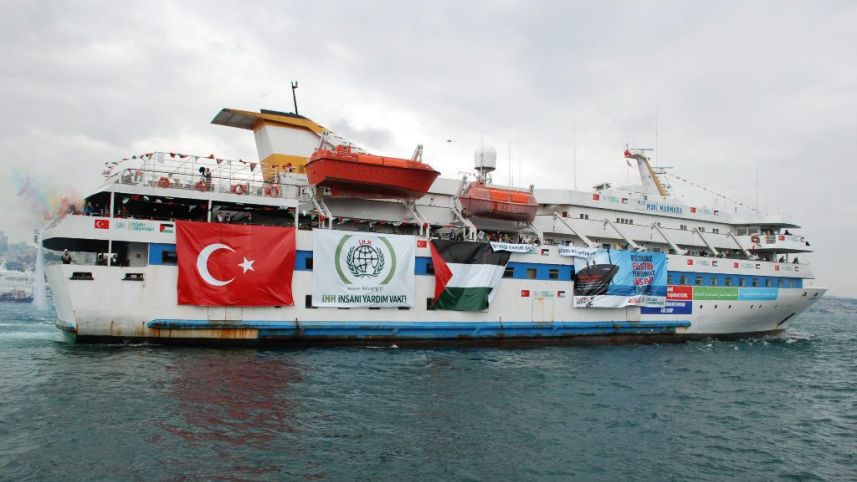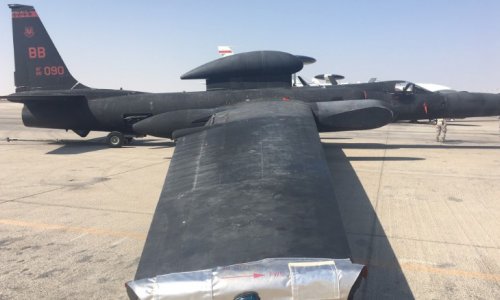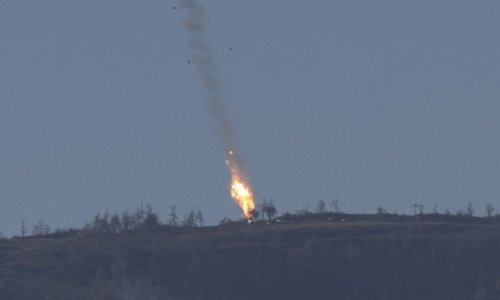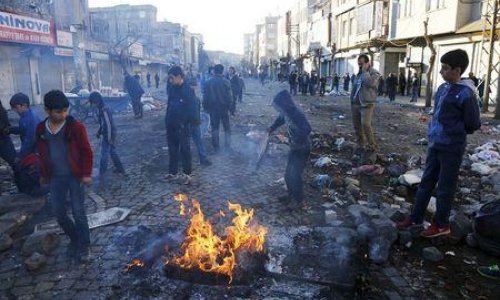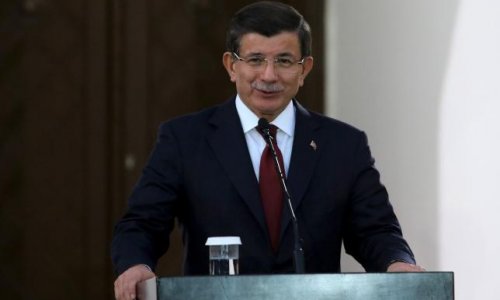Israel and Turkey have reached understanding on the outlines of a reconciliation agreement that would put an end to the long crisis in relations between the two countries and normalize ties.
Joseph Ciechanover, Prime Minister Benjamin Netanyahu’s envoy in contacts with Turkey, and National Security Adviser, Yossi Cohen, who will soon become head of the Mossad, concluded most of the principles of the agreement with Turkish under-foreign minister Feridun Sinirlioglu during a meeting in Zurich on Wednesday, a senior official in Jerusalem told Haaretz.
The crisis between Israel and Turkey was precipitated by a 2010 confrontation in the Mediterranean between the Israel Navy and a Turkish flotilla attempting to break Israel’s blockade of the Hamas-controlled Gaza Strip. Nine passengers were killed and another died later of his injuries in violent clashes between passengers on one of the ships, the Mavi Marmara, and Israeli naval commandos.
The senior official stressed that the two countries have not yet reached agreement on the Turkish demand that Israel lift its blockade on the Gaza Strip entirely.
"Erdogan is on record as predicating the normalization of relations with Israel on a total lifting of the blockade on Gaza,” the official said. "There are ideas but no solution to the issue as yet. It’s not simple.”
He added that an outline and framework for the reconciliation agreement exists, but finalization of the agreement will take more time and additional meetings. The next meeting between negotiators from both countries was likely to take place during January."The atmosphere and direction are good, but the leaders have not yet given their final approval,” he said.
The agreement follows five years of diplomatic contacts that began following the flotilla incident, which several times brought the parties close to signing an agreement, but which collapsed at the last minute due to backtracking by one side or the other. "The agreement has still not been given a final signature and we still have to work on some details, but the crisis is on the way to being resolved," the senior Israeli official said.
The agreement in principle was first reported by Ayala Hasson on Channel 10 television.
The senior Israeli official noted that the agreement between the two countries includes the following:
1. In the framework of the agreement, Israel will pay Turkey $20 million in compensation, which will be transferred to a special fund that will in turn provide grants to the families of the Turkish citizens who were killed or injured in the Israel Navy's takeover of the Mavi Marmara.
2. Turkey and Israel will renew and normalize their relations and return their respective ambassadors to Tel Aviv and Ankara.
3. The Turkish parliament will pass a law that will annul all legal claims against Israeli Defense Force officers and soldiers in connection with the flotilla incident and will prevent future claims from being filed.
4. Turkey will expel Saleh al-Aruri, a senior member of Hamas' military wing, who is based in Istanbul and is directing terrorist operatives in the West Bank from there. In addition, Hamas activities in Turkey in general will be limited.
5. Once the final agreement between the two countries has been signed, Turkey and Israel will explore cooperating in the natural gas field – with Turkey buying gas from Israel's offshore oil fields and the laying of a gas pipeline that would run via Turkey and through which Israel would export gas to Europe.
The normalization agreement came just days after Turkish President Recep Tayyip Erdogan told reporters that such a move "would be good for us, Israel, Palestine and the entire region." The Foreign Ministry responded to the hopeful remarks, saying that "Israel has always strived for stable relations with Turkey and is constantly examining ways to achieve that goal."
Deadlock and then agreement
In March 2013, in the course of a visit by U.S. President Barack Obama to Israel, a telephone call was arranged between Prime Minister Netanyahu and Erdogan, Turkey's prime minister at the time and now the country's president. Netanyahu apologized in the call over the deaths of the Turkish citizens on the Mavi Marmara, which had resulted in a downgrading of relations between the two countries and the expulsion of the Israeli ambassador from Ankara in September 2011.
Following the telephone call, negotiations began on a reconciliation agreement between the countries but they deadlocked. In December 2013, however, after several months of stalemate, there was a breakthrough in contacts. An Israeli negotiating team went to Istanbul for talks and several weeks later, a Turkish team of negotiators came to Jerusalem.
The breakthrough followed Turkish and Israeli readiness to soften their stances on the amount of compensation to be paid to the families of Turkish citizens who were killed or injured on the Mavi Marmara. Israel agreed to raise the compensation sum to $20 million to close the deal. Based on the agreements concluded at the time, it was decided that the compensation would not be paid directly to the families but instead would be deposited into the humanitarian fund, from which it would be dispersed to the families based on set criteria.
In February 2014, a draft agreement between the countries was developed. In addition to the amount of compensation, agreement was reached on the legislation to be passed by the Turkish parliament that would annul the claims against members of the IDF who took part in the operation against the flotilla. In addition, an outline plan was developed for the normalization of relations between the countries. The Israeli negotiators recommended that Netanyahu accept the deal, but prime minister -- who just weeks earlier had instructed the negotiating team to do what it could to reach an agreement to put an end to the crisis – delayed his decision for an extended period and ultimately he did not sign onto the draft.
Several weeks later, in a telephone conversation between President Obama and Turkish President Erdogan, Obama pressed his Turkish counterpart to accept the reconciliation agreement and put an end to the crisis. A senior Israeli official said at the time that while Netanyahu had delayed ending the crisis, Erdogan had been prepared to sign onto the draft agreement, telling Obama that the ball was in Netanyahu's court.
Over the past year, due to elections in Israel and in Turkey, the talks between the two countries have proceeded relatively slowly, but the contacts that Ciechanover and Cohen had with their Turkish negotiating counterparts were maintained. For its part, over the past year, Israel added an additional condition to the agreement including a demand that Turkey halt the activities of the military wing of Hamas on Turkish territory and expel senior Hamas officials, notably Saleh al-Aruri.
In recent weeks, the pace of negotiations was stepped up, particularly after Turkey downed a Russian airplane in the area of the Syrian-Turkish border. The incident led to major tension between Moscow and Ankara and the imposition of Russian economic sanctions on Turkey.
After intensive contacts between Ciechanover and Turkish under-secretary Sinirlioglu, the meeting in Zurich was arranged where the principles of the reconciliation agreement were finalized.
(Haaretz)
www.ann.az
Follow us !

